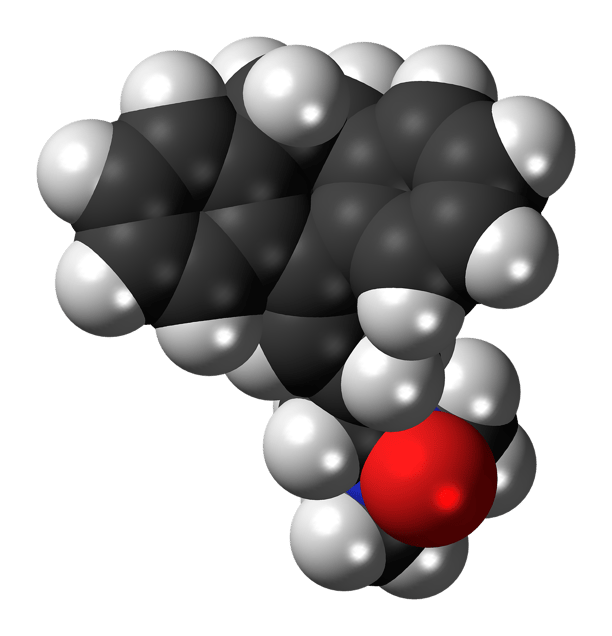Surviving Antidepressants Withdrawal
One tenth of the people that have depression are prescribed antidepressants and of these many struggle to survive the effects. While the vast majority of people that take antidepressants feel better or nothing at all, many are worse off and feel they are surviving antidepressants withdrawal.
It is difficult to estimate how long patients stay on these medications once them, but studies suggest longer than is recommended. Many people want to stop their antidepressant medication but fear a relapse of depression and withdrawal symptoms. The question is, are antidepressants the only answer? If you are on them, how easy are they to stop? If you have stopped, what do you do if you have withdrawal symptoms? In an effort to help those taking antidepressants and surviving antidepressants withdrawal, I want to address these questions.
How Do Antidepressants Work?

Antidepressants are drugs that have neuropsychiatric effects. They can affect your central nervous system, behavior, mood, and outlook. Of course, the idea is to have a positive affect these areas of our being. When this desired effect occurs there are no problems, but many times the intended effect does not occur. To understand this let's look at how these medications work.
Antidepressants are typically prescribed for those with moderate to severe Depressive Disorder or Generalized Anxiety Disorder. These medications work by changing a person's brain chemistry to make them feel less depressed, calmer and to regulate their mood. Most work by changing the amount of available serotonin at critical areas in the brain called synaptic cleft. These are the classic SSRI's (Selective Serotonin Reuptake Inhibitors). They do this by changing serotonin transporter enzyme levels in the cleft. The job of this enzyme is to remove serotonin. By reducing these enzymes there is more available serotonin to bind to the receptors where it works.
However, as with all medications, antidepressants don't always have their desired outcome. Some antidepressants are more likely than others to have adverse reactions and some of the reactions can be more serious than others. In other cases the antidepressants simply don't help at all. As a result many people wish to stop taking them and some don't even want to start. To understand these differences and how to survive antidepressants withdrawal we have to ask, why do antidepressants work well for some and have a negative or no effect for others?
Surviving Antidepressants Withdrawal Syndrome
Antidepressant Discontinuation or Withdrawal Syndrome (ADS) is a phenomenon that occurs when the blood levels of the SSRI or similar medications are changed or interrupted. This can occur from missing a dose, decreasing the dose, changing the metabolism of the medication, or abruptly discontinuing the medication altogether. It is more likely for this phenomenon to occur when you have been taking this medication for longer periods of time (greater than 6 weeks). It is over longer periods of time that the body can become accustom to the medication.
Most antidepressant medications are not addictive or habit forming in the classic sense but they do change brain chemistry (as noted above). In addition to increasing available serotonin, these medications can cause the body to reduce serotonin receptors. Then when there is a reduction in the blood levels of medication the amount of serotonin is low and the receptors are low. This can cause like symptoms for some people. It is not one hundred percent clear as to why some have this and other don't but differences in genetics point to the most likely cause.
For instance, if you are having difficulty coming off your antidepressants you may have genetics that favor fast metabolism of the medication you are taking. The medications with shorter half life, like paxil and zoloft, are more likely to cause difficulty surviving antidepressants withdrawal or otherwise. Because half life is determined by enzymes of metabolism, and these enzymes are genetically determined, your genetics contribute to antidepressant withdrawal.
Surviving Antidepressants and Genetics
The reference to genetics here is referring to single nucleotide polymorphisms or SNPs. These are small changes in specific areas of our genes that impact how the protein is made. The genes contain the codes for proteins which many times are enzymes. When SNPs are present they will either increase or decrease efficiency of the enzymes the genes make. When it comes to metabolism of medications, having a SNP can make the medication much slower or faster to leave your system.
Antidepressants go through multiple layers or metabolism and breakdown. The first layer is called the p450 enzymes and the most commonly used enzymes for this process are p450 2D6 and 3A4. So if you have SNPs in either of these you may have more of a challenge surviving antidepressants especially if you are an ultra rapid metabolizer. After the medications are changed by the p450 enzymes, they undergo further change before they are eliminated from the body. These pathways are called conjugation and most commonly involve glutathione, sulfation, and glucuronidation. SNPs in these enzymes could also cause one to be more vulnerable to ADS.
Genetic changes in the serotonin transporter have also been linked to causing some people to have more difficulty surviving antidepressants both during and after stopping them. The serotonin transporter is where most SSRI medications have their activity (noted above). Those individuals with a genetic variation in the serotonin transport known as the short allele, have a more adverse reactions to antidepressants, more difficulty when stopping them and also don't typically respond as well to begin with.
Given all the variables discussed above, what you do to help your depression or with surviving antidepressants withdrawal?
Alternatives for Surviving Antidepressants
What follow is not a list of treatments for anxiety and depression but suggestions on how to help when you are struggling with ADS. By the way, I do not recommend discontinuing your antidepressant medication without your doctors supervision. If you are on an antidepressant and not doing well with it most doctors will simply switch you to a different one. This may work I usually look for alternatives to antidepressants. The first thing I consider in situations with decreasing or stopping an antidepressant is how quickly to reduce the medication. As mentioned above, the medications that have shorter half lives are more likely to cause these types of reactions. These medications will warrant a slower taper. So knowing the half-life of the medication is important. Understanding your genetics can help with this too as we may need to reduce the taper further in those with genetic alterations in serotonin transporter and p450 enzymes.
Organically improving the amount of serotonin your body produces could help surviving antidepressants withdrawal as well. This can be done by identifying anything that may impairing your serotonin production both nutritionally and genetically.
On such genetic example is the presence of the MTHFR gene mutation. You can read more about that in the link. The basis idea is this alteration can slow production of neurotransmitters. Supporting the MTHFR gene mutation can even out your mood and reduce some of the withdrawl symptoms. Acupuncture for anxiety and depression is also very effective and can also be used to treat ADS.
These are just some of the considerations for those suffering with depression and surviving antidepressants withdrawal. Generally speaking, we use a holistic approach and offer personalized treatments on a case by case basis.

















